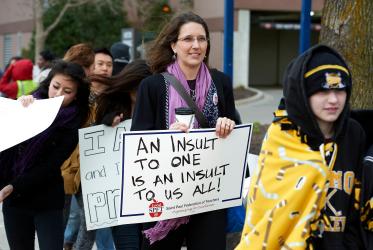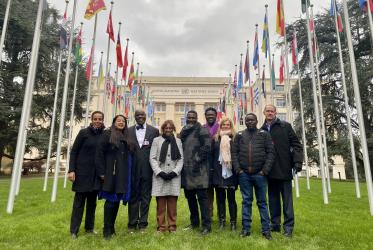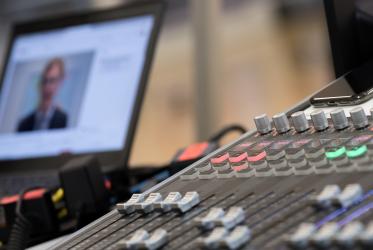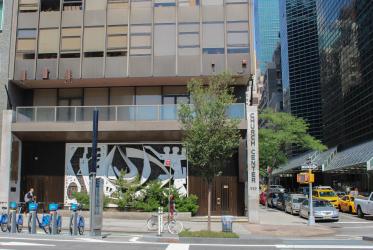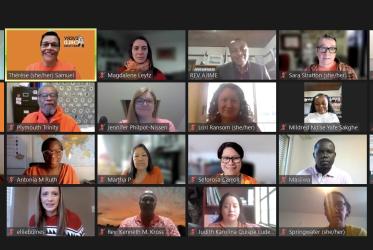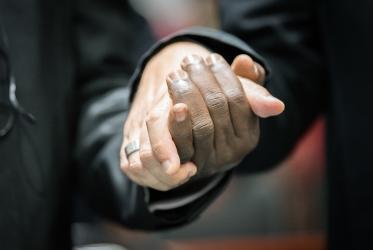Displaying 1 - 20 of 27
28 March 2024
ACT Alliance general secretary: “equity is not negotiable”
26 September 2023
WCC helps churches connect with UN on racial justice issues
09 November 2022
„Donnerstags in Schwarz“ zeigt sich in New York City
13 October 2022
In New York City, the spirit of Thursdays in Black is thriving
06 October 2022
Webinar remembers past massacres in Europe
16 December 2021




